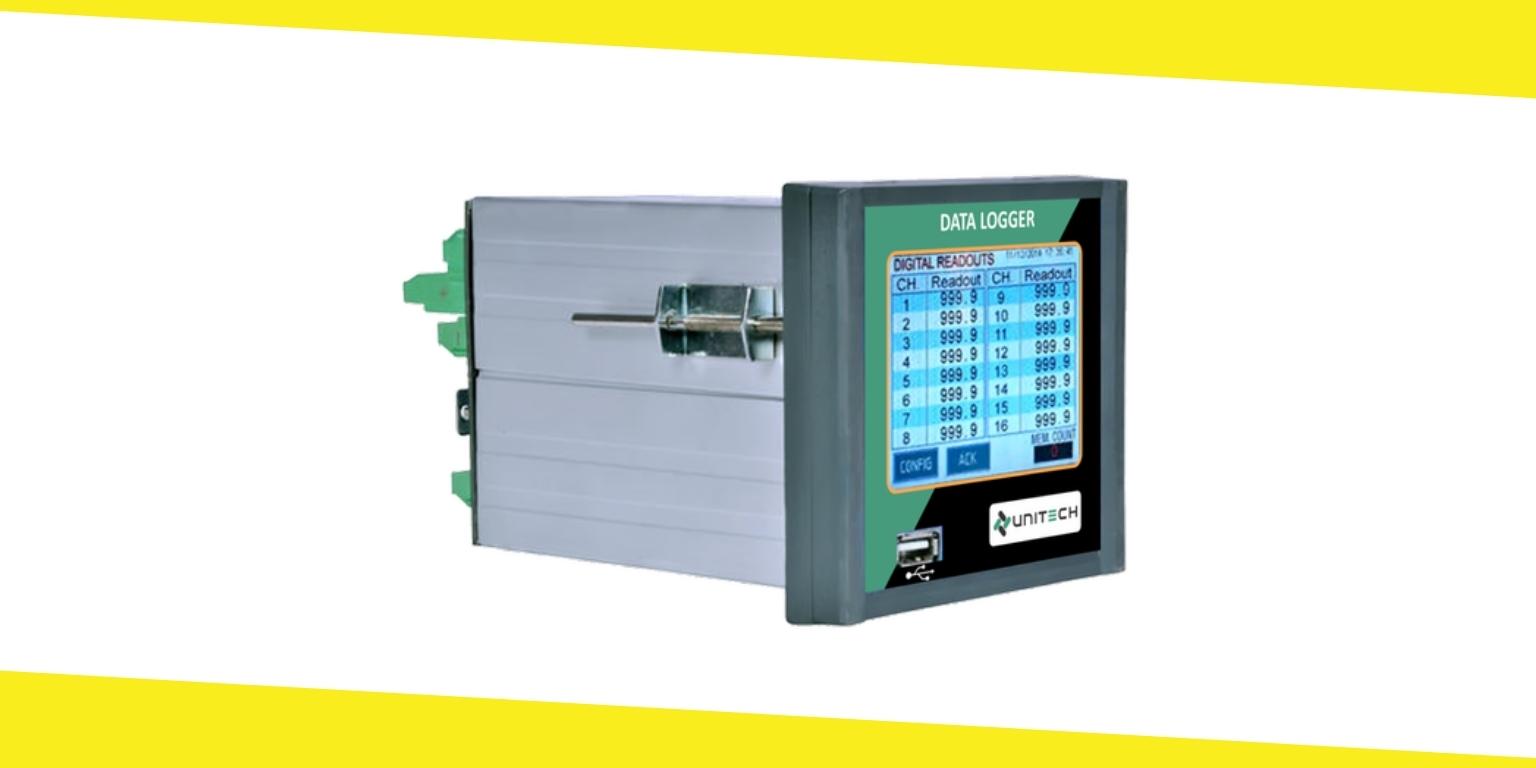The Different Types of Data Loggers

Data loggers have become standard devices used in various industrial applications and are instrumental in monitoring data concerning indoor, outdoor, underwater, and transit environments. They are also heavily used in manufacturing temperature-sensitive goods and storing and transporting these products.
The data logger market has grown exponentially in the last few years. As more companies rely on data-oriented decision-making, the use of data loggers is significantly increasing.
Data Loggers
A data logger is a device used to monitor and record measurements like temperature, humidity, and air quality. These devices record measurements at specific intervals with specialized sensors.
According to Dickson, data loggers fall in the category of electronic devices and contain a microprocessor, an internal storage facility, and one or more sensors. The range, interval, and duration of data monitoring depend on the programming of the data logger. While some data loggers might only function for a few weeks, some can run for months or years without any manual intervention.
The dimensions of a data logger depend on its function. It can be a compact one that can fit into your palm or a stand-alone unit that comprises external sensors and multiple channels. Data loggers are available in many different varieties depending on users’ needs.
Common Types of Data Loggers
-
USB Data Logger
USB data loggers monitor and store data that you will have to transfer manually. These data loggers consist of a sensor for measuring specific environmental parameters. This data logger comes with a USB cable that you must attach to extract the information and store it on other devices like a PC or a hard disk.
-
Bluetooth-enabled Data Loggers
We use Bluetooth-enabled data loggers for historical data logging. Smaller operation sites install these when they do not require advanced data monitoring and transmission optimization. Transmission takes place via Bluetooth data offload or connection with the help of an internet gateway.
-
Web-based Data Loggers
Web-based data loggers are for real-time data access. They offer information via the internet and can be accessed remotely. Web-based data loggers are the most commonly used ones in the current market. Logistics, or transportation companies, primarily use them in transit and cold storage chains. They offer instant information that enables users to make informed decisions without wasting time.
There are many more variations of data loggers available in the market. From a compact wireless data logger with a single sensor to a large device with multiple external sensors, you can find data loggers that cater to the needs of every user or industry.
Types of Information They Provide
The primary purpose of data loggers is to measure and consistently provide recordings of specific parameters. Data loggers offer data acquisition facilities for a variety of information. This information revolves around environmental factors like humidity, temperature, air quality, and pressure.
Data loggers provide information in the form of periodic readings. You can customize the measurement units of these readings as per the user’s need. Moreover, companies can use the basic information gathered through data loggers for analytical functions, research, and decision-making.
How Different Businesses Use Them
Many business sectors use data loggers for convenience, accuracy, and innumerable benefits.
Here are some of the industries that rely on data loggers.
-
Medical and Pharmaceutical Industries
Data loggers are an ideal tool for the medical and pharmaceutical industries. These industries utilize these devices to document and analyze temperature, humidity, pressure, and other environmental factors. The information acquired from data loggers enables businesses to maintain a suitable environment for the manufacturing, storage, and transportation of vaccines, drugs, and medicines.
-
Industrial Safety and Health
Industries employ data loggers that function in factory locations for product assembly and manufacturing. They also use data loggers to maintain a healthful and workable environment for their workers.
Many factories that work with chemicals or utilize specific processes may encounter low air quality due to emissions from these chemicals or their manufacturing process. They are creating a hazardous environment and risking their workers’ well-being.
Data loggers are installed in these industries to regulate the air quality and monitor the CO2 levels to prevent health risks. Data loggers measure the air purity and toxin levels in the air to assure that the environment remains safe and does not defy any law or regulation.
-
Urban Planning
State, federal and local governments use data loggers to collect accurate data, which they use for better urban planning. Highways and road infrastructures are enhanced with organized data accumulation and research. The government is empowered to make fairer decisions and look into more sustainable development plans with a data-centric approach.
-
Traffic Monitoring
The use of data loggers also benefits traffic monitoring. Transportation departments install data loggers on surface roads and highways for regulation purposes. Municipalities can use the information collected to analyze road usage and devise better plans for maintenance and development.
Temperature Recording is Important
One of the most common data loggers is a temperature recording data logger because temperature plays an essential role in determining if an environment is suitable for maintaining a product’s efficacy and safety. Temperature monitoring is vital for maintaining a safe and viable space from the automobile industry to the rental sector and farm working spaces.
The United Nations’ concern with global warming has inspired many regulations across the globe. Climate scientists use data loggers to monitor changes in temperature globally. The information is especially crucial in the current scenario of melting ice caps, rising sea levels, and increasing temperatures.
How They Help in Environmental Monitoring
Data loggers help in achieving the goal of environmental monitoring conveniently and accurately. Data loggers are instrumental in recording water levels, current, voltage, pressure variations, pollution, contamination, solar radiation, soil moisture, wind speed, etc. Data logger manufacturers design them to monitor one or more factors depending upon an organization’s needs.
Final Word
As more companies and sectors acknowledge the advantages of data loggers, they are shifting towards the technology and utilizing it to increase their work potential and make informed decisions. The market for data loggers will continue to grow as we see an increase in innovations and advancements in technologies.
Recommended For You
Best Brands of Basmati Rice in India
Most Inside
Most Inside offers high-quality recommendations and valuable updates to enhance all aspects of your life, providing premium guidance and enriching experiences.




